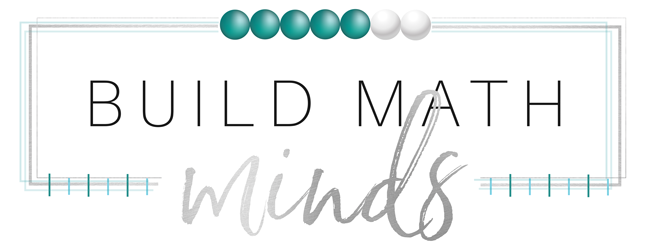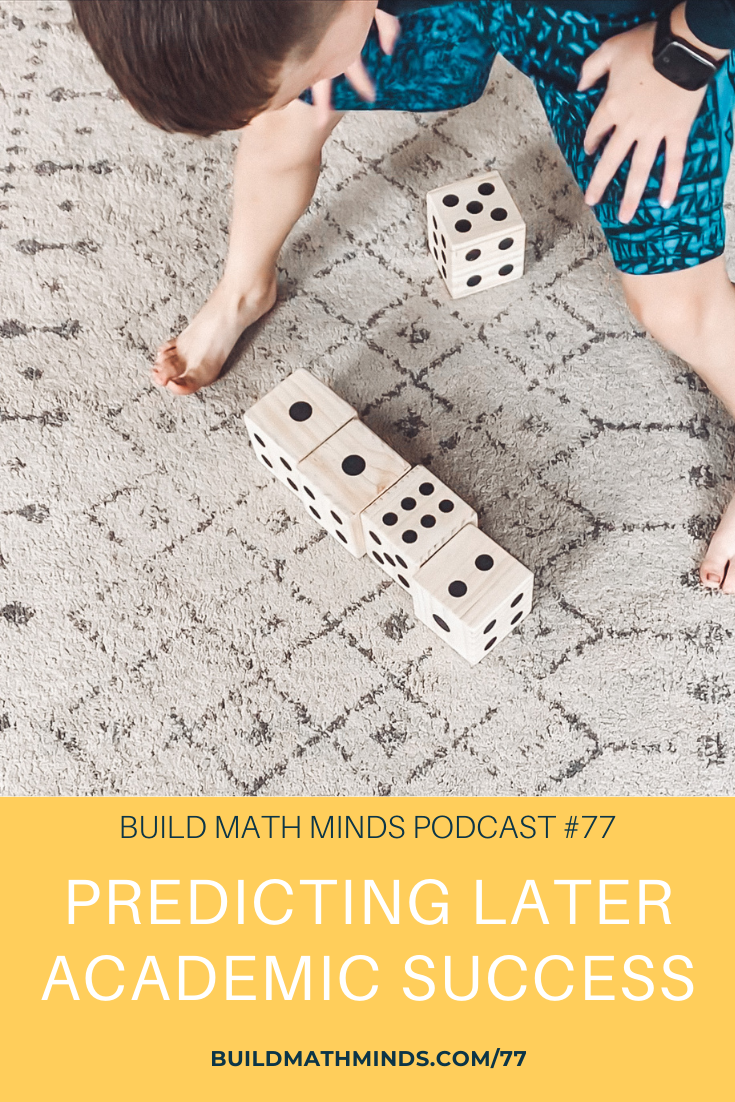Resources mentioned in this episode:
School Readiness and Later Achievement by Duncan, et al
Watch the Building Math Fluency Video Series
Learn more about The Flexibility Formula courses
Welcome fellow Recovering Traditionalists to Episode 77. Today we are taking a look at Predicting Later Academic Success.
In this episode, I’m sharing a very research heavy article, but it is worth the read. School Readiness and Later Achievement by Duncan, et al provides such an interesting observation through their meta-analysis of data sets that looked at school readiness (school-entry academic, attention, and socioemotional skills) and later academic success in reading and math. I’m linking up the article over at buildmathminds.com/77
What’s so interesting about the findings from this article is that the strongest predictors of later academic success are school-entry math, reading, and attention skills. And early math skills have the greatest predictive power, followed by reading and then the attention skills.
At the end of the article, on page 1444, they describe their key findings, one of which I will share here:
“First, math and reading skills at the point of school entry are consistently associated with higher levels of academic performance in later grades. Particularly impressive is the predictive power of early math skills, which supports the wisdom of experimental evaluations of promising early math interventions.”
They even say in the article that “One of our noteworthy results is that early math is a more powerful predictor of later reading achievement than early reading is of later math achievement.” (p. 1443)
So, this article makes the case that early intervention for math is important and also that by helping increase early math it also helps improve their reading later. This article was published in 2007, yet still the focus early on in the majority of schools is on reading skills, not math.
I’ve had conversations with multiple people lately about how hard it is to catch kids up who are struggling with math versus kids who are struggling with reading. I have a personal friend who has a child who is struggling with both and they were wondering what they should focus on.
I told them to focus on math. You may not agree with me, so let me know in the comments, but here’s why I say that.
If a child is struggling to read and struggling and struggling and then they finally ‘get it’ and they take off reading that is amazing and now we help them read different kinds of texts and read to gather information, etc.
But if a child is struggling in math with addition and struggling and struggling and then they finally get it, that’s awesome but now we also need to help them with subtraction and if they are in 3rd grade we also have to help them with multiplication and division. There are so many areas of math that once you “get math” there’s something new in math to learn and connect to.
Plus I also know that most schools aren’t doing math intervention. The school will be focusing on reading, so I didn’t want this friend to also be focusing on reading and their child to get no help with math.
Kids who start off struggling with math, every year they struggle it just builds and builds and builds. That’s why it’s so important that we advocate for early intervention in math, for preschools to be doing math-y things, and even when parents go to see the doctor when they are first pregnant…how about we give them pamphlets on math-y things to do with their babies and toddlers instead of just things to do with them to help them start reading with their children.
Please don’t get me wrong…reading is important and I know I’m biased to math, but there is research to back that up. Again I’ll link to the article by Duncan, et al at buildmathminds.com/77 so you can go check it out yourself. And if you’d like ideas on how to help build some of those math-y things with kiddos, go check out my video series I have out. The videos are all about how to build kids’ thinking in elementary math and thus their fluency. The videos are only available for a few more days. I’ll link to those along with the article over at buildmathminds.com/77.
Stay safe and stay healthy
Subscribe and Review in iTunes
Hey, are you subscribed to the Build Math Minds Podcast, yet? If you’re not, make sure to do that today because I don’t want you to miss any episodes! Click here to subscribe to the podcast in iTunes.
While you’re there, don’t forget to leave a review on iTunes too. I would love to know your thoughts and how we can make sure that we give you content that you will really enjoy.
To leave a review, head over to iTunes and click on “Ratings and Reviews” and “Write a Review.” I can’t wait to hear your thoughts about the podcast.





Thanks for this, Christina. I agree completely! Do you have any resources on how best to teach very young children? Things to do in a preschool class? In other words, is there a you for toddlers?
😉 check out Juanita Copley. I don’t know if she does stuff online, but she has a great book.
Christina, I couldn’t agree more. I am an elementary math instructional coach and ELAR always seems to take up all of the oxygen in the room — especially when we are talking about young learners. Your comment, “Kids who start off struggling with math, every year they struggle it just builds and builds and builds,” is so true!! I feel like in schools we try to combat this with drill and kill test prep instead of conceptual understanding. Thanks for all you do. Your messages are spot on!
Thanks for this topic. I’ve been talking to colleagues and administrators about this study for years. Even the most dedicated and intelligent educators have a hard time abandoning the conventional wisdom about reading and math, even if data directly contradicts it. (The same could be said regarding fixed ability grouping!) I hope that the more of us who talk about this, and keep talking about it, the more likely it is that the conventional wisdom will eventually shift.